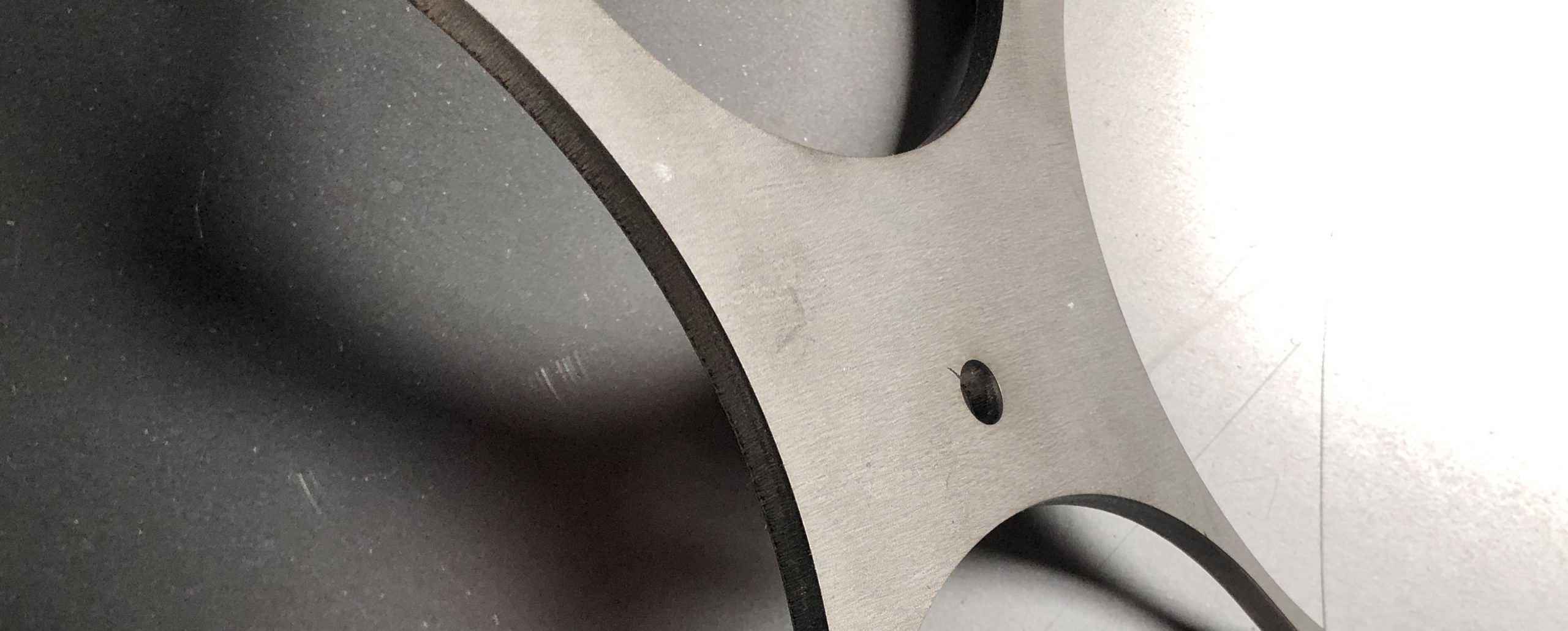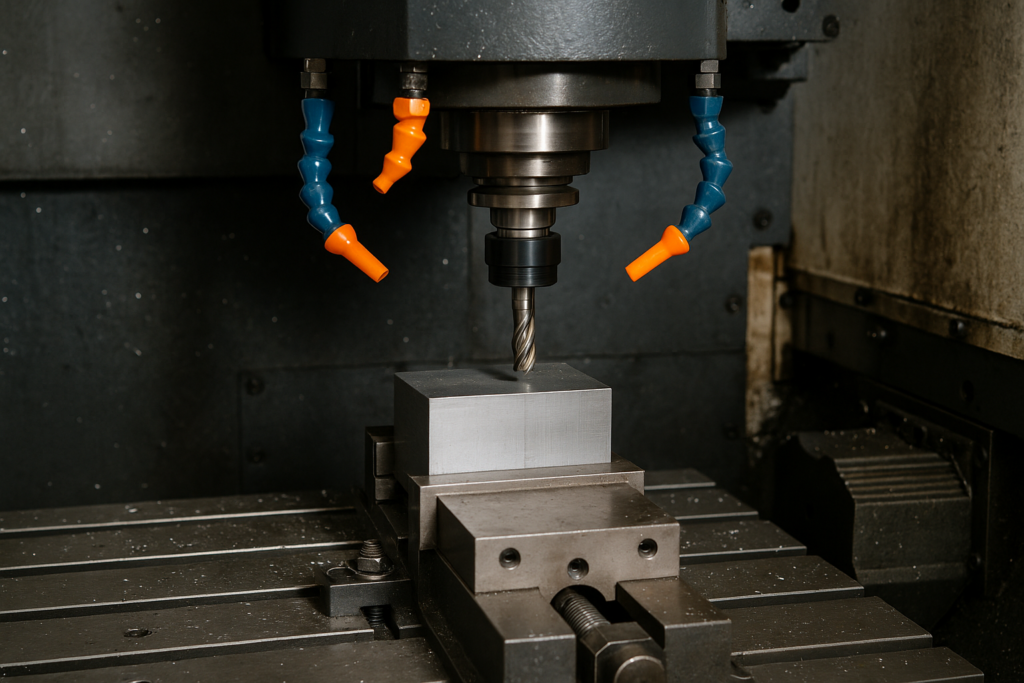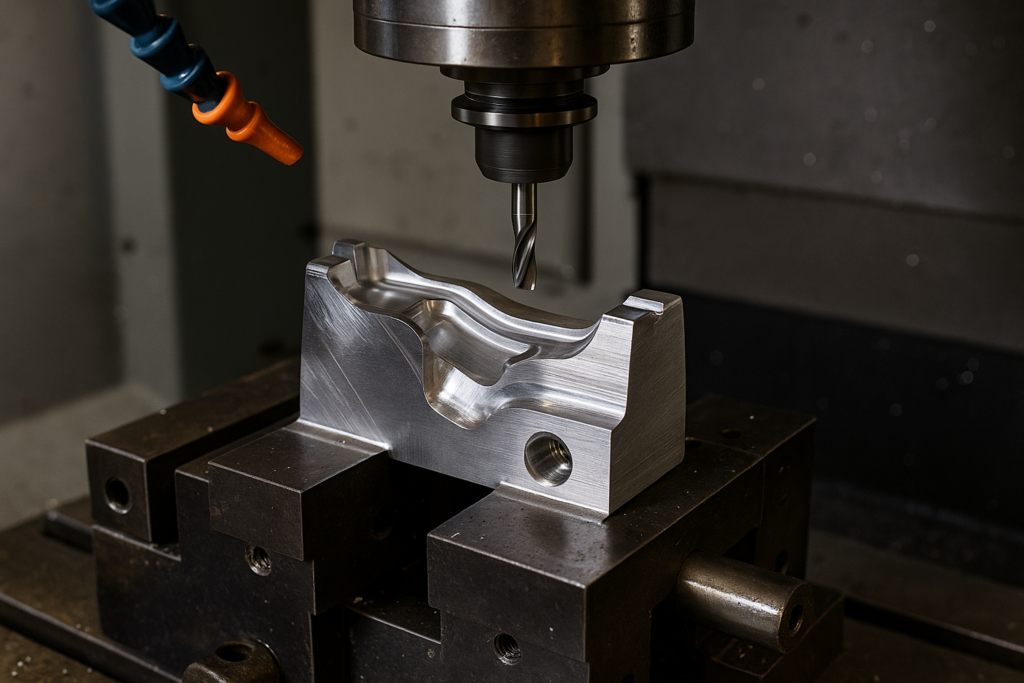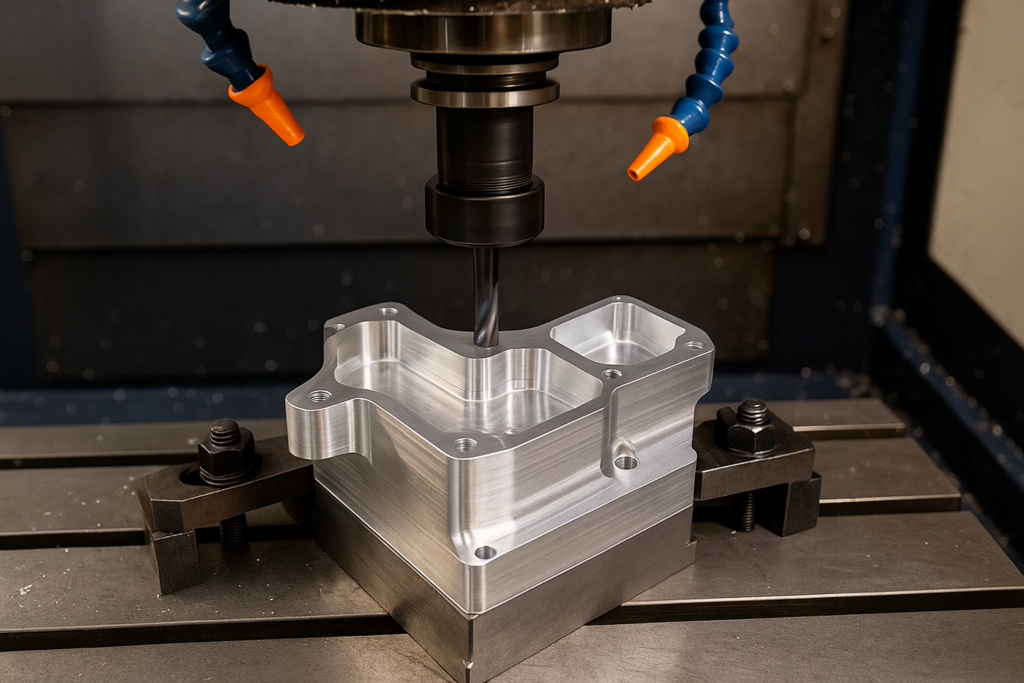As we look towards 2025, custom manufacturing is poised for groundbreaking advancements fueled by precision machining and CNC engineering. Innovative techniques are reshaping the industry, enabling high-quality production with unparalleled accuracy and efficiency. AP Precision Metals, Inc. stands at the forefront of this evolution, harnessing cutting-edge technology to deliver bespoke solutions across various sectors. From aerospace to renewable energy, precision machining is not only enhancing product quality but also accelerating time-to-market. Discover how these trends are shaping the future of manufacturing, ensuring companies remain competitive in a rapidly evolving landscape.
Brief Overview
Custom manufacturing is undergoing a remarkable transformation as we approach 2025, driven by advancements in precision CNC machining. These innovations are enabling streamlined production processes with higher accuracy and efficiency, significantly impacting industries like aerospace, medical devices, and renewable energy. Companies such as AP Precision Metals are at the forefront, utilizing state-of-the-art technology to deliver bespoke solutions and maintain a competitive edge. This evolution in manufacturing not only enhances product quality but also accelerates production timelines, ensuring that businesses can adapt to dynamic market demands and sustain their growth in a rapidly changing environment.
Key Highlights
- Precision machining and CNC engineering drive manufacturing advancements towards 2025, enhancing quality and efficiency in industries like aerospace and medical devices.
- Cutting-edge technologies, including AI and IIoT, optimize operations, reduce costs, and drive innovation in custom manufacturing.
- AP Precision Metals embraces sustainable manufacturing, prioritizing eco-friendly practices and efficient resource usage in production processes.
- Flexibility in manufacturing processes allows companies to swiftly adapt to market changes, vital for maintaining a competitive edge.
- Future CNC developments post-2025 will integrate AI for self-optimization, boosting efficiency and enabling advanced material handling.
The Evolution of CNC Machining in Custom Manufacturing
As we forge ahead into the exciting landscape of 2025, CNC machining stands at the forefront of custom manufacturing revolution, continually adapting to meet the precise demands of diverse industries. This ongoing evolution is pivotal for sectors that require precision and flexibility in every component they produce. The journey of CNC machining in custom manufacturing is marked by technological advancements that redefine efficiency and quality standards. Here, we delve into the transformative power of precision machining in production processes, the burgeoning role of AI within CNC systems, and how these innovations are setting unprecedented industry benchmarks.
How Precision Machining is Revolutionizing Production
The integration of precision machining into modern production processes is not just an innovation; it is a revolution that is steadfastly reshaping the custom manufacturing landscape. Industries spanning from aerospace to medical devices harness the capabilities of CNC machining for its exceptional accuracy and efficiency. Companies like AP Precision Metals utilize state-of-the-art CNC systems to fabricate high-quality metal components that meet the rigorous demands of today’s manufacturing standards. By employing this advanced technology, intricate parts with stringent tolerances are consistently produced, assuring reliability throughout production cycles.
A significant advantage of precision machining is its ability to minimize material waste while significantly enhancing production speeds. CNC machines operate with remarkable stability, requiring minimal human intervention, thereby allowing companies to scale their production efforts without sacrificing quality. The inherent automation drastically reduces the margin of human error, which is critical in fields where even minimal imperfections can have severe repercussions.
Furthermore, precision machining propels custom manufacturing by offering tremendous design flexibility. This versatility is indispensable for OEMs and manufacturers aiming to quickly adapt to fluctuating market trends and innovate without encountering exorbitant costs or delays. By seamlessly integrating CAD software with CNC machinery, companies can effortlessly modify design specifications and promptly implement these changes on the production floor. This adaptability not only fosters innovation but also confers a competitive edge in the dynamic manufacturing industry landscape.
Looking to the horizon, the significance of precision machining within custom manufacturing is poised to expand. As AI and machine learning advancements permeate the industry, CNC systems are evolving to become more intuitive, capable of predicting maintenance requirements, optimizing production workflows, and learning from previous mistakes to enhance operational efficiency. This future-oriented strategy ensures uninterrupted operations and sustained productivity. To explore further how precision machining can elevate your manufacturing capabilities, we invite you to visit our services page for additional insights.
The Role of Innovative Technologies in 2025 Manufacturing Trends
Navigating the landscape of 2025, innovative technologies are set to redefine the manufacturing industry. This transformation is evident as companies integrate cutting-edge solutions to bolster efficiency, reduce costs, and enhance product quality. In this section, we will explore the key technologies driving this growth and how these advancements are influencing the market. From the integration of digital technologies to advancements in medical manufacturing, the impact is vast and profound, setting the stage for a new era in custom manufacturing.
Exploring Key Technologies Driving Industry Growth
The manufacturing industry continues to evolve, driven by a confluence of advanced technologies that are shaping the market landscape in 2025. Among these, digital technologies like the Industrial Internet of Things (IIoT) and artificial intelligence (AI) are key players, providing manufacturers with the tools to optimize operations and streamline processes. IIoT enables real-time monitoring and data collection across manufacturing facilities, offering insights that drive efficiency and improve product quality. Companies can leverage these insights to proactively address maintenance needs, effectively reducing downtime and enhancing productivity.
AI, on the other hand, introduces a new layer of sophistication to manufacturing processes. By integrating machine learning algorithms, manufacturers can analyze vast datasets to improve decision-making and forecast market trends with greater accuracy. This data-driven approach allows for precise quality control and customization in product development, ensuring that companies can meet consumer demands without delay. Additionally, AI fosters innovation by enabling rapid prototyping and testing, thus accelerating the product development cycle.
A significant development is the rise of autonomous manufacturing systems, which blend robotics with these digital technologies to create highly efficient production environments. These systems minimize human intervention while maximizing throughput, a crucial benefit in the competitive manufacturing industry. The reduction in human error and material waste aligns with sustainability goals, a growing consideration for companies in various sectors, including the medical and aerospace industries.
Moreover, the convergence of these technologies is pushing boundaries in medical manufacturing. Enhanced automation facilitates the production of complex medical devices with stringent tolerances, aligned with industry standards. As technologies continue to evolve, they promise to unlock new capabilities and efficiencies, propelling the manufacturing industry towards a future where precision, speed, and quality coexist seamlessly. For companies like AP Precision Metals, staying at the forefront of these trends ensures the delivery of superior products and maintains a competitive edge in a rapidly advancing market.
5 Game-Changing Technologies Fueling Manufacturing Growth in 2025
- Artificial Intelligence and Machine Learning
- Advanced Robotics and Automation
- Industrial Internet of Things (IIoT)
- 3D Printing and Additive Manufacturing
- Smart Sensors and Connectivity
Trends Shaping the Future of Precision Machining
As we look toward 2025, precision machining will continue to redefine custom manufacturing, ushering in an era of transformative industry trends. OEMs and manufacturers are poised to benefit from advancements that enhance production efficiency, reduce costs, and drive innovation. This section will explore critical trends shaping this future, including technological integrations and the increasing importance of design flexibility. We will delve into how these trends impact manufacturers and demand vigilant monitoring to remain competitive in the evolving market landscape.
Critical Trends for OEMs and Manufacturers to Monitor
The dynamic landscape of precision machining is evolving rapidly, with new trends shaping the future and providing opportunities for innovation. For OEMs and manufacturers, critical monitoring of these trends is essential to maintain a competitive edge. One significant trend is the growing integration of advanced digital technologies, such as the Industrial Internet of Things (IIoT) and artificial intelligence (AI), which are transforming production processes. IIoT facilitates real-time data collection and monitoring, enabling manufacturers to optimize operations and enhance product quality by proactively addressing maintenance and operational inefficiencies. AI further elevates manufacturing sophistication, allowing for data-driven decision-making and rapid prototyping, which improves quality control and accelerates product development cycles.
As precision machining continues to advance, automation remains a central theme, particularly through the use of CNC systems. These systems ensure enhanced precision and scalability, proving indispensable for industries like aerospace and medical devices where stringent tolerances are non-negotiable. AP Precision Metals, for instance, embodies these advancements by leveraging cutting-edge CNC technology to fabricate high-quality components integral to modern manufacturing standards. By automating production, these processes also significantly reduce human error and material waste — a crucial benefit as sustainability becomes a key focus across sectors.
Furthermore, design flexibility is increasingly critical for OEMs and manufacturers aiming to swiftly adapt to market demands. The integration of CAD software with CNC machinery offers immense versatility, allowing companies to innovate without facing prohibitive costs or production delays. This capability is pivotal in maintaining relevance amidst ever-changing market trends. For manufacturers, staying attuned to these developments is vital not only for staying competitive but also for capitalizing on the efficiencies and opportunities they present. To navigate these transformative trends successfully, continuous adaptation and adoption of emerging technologies will be key. Companies should constantly evaluate their processes, ensuring they are aligned with the industry’s best practices to harness the full potential of precision machining.
Meeting Industry Demands: The Importance of Material Selection
As the custom manufacturing landscape evolves, selecting the right materials becomes increasingly crucial in meeting industry demands. This section delves into the essential criteria for material selection, focusing on how strategic choices can enhance manufacturing processes. From ensuring the durability and efficiency of components to aligning with stringent design specifications, the importance of choosing the right materials cannot be overstated. We’ll explore key considerations in selecting materials that are pivotal for superior manufacturing outcomes.
Choosing the Right Materials for Superior Manufacturing
In the rapidly advancing world of custom manufacturing, selecting the right materials is tantamount to success. The choice of materials affects every facet of production, from design precision to efficiency and ultimately, the quality of the final parts. Material selection gains particular emphasis in sectors like medical devices and aerospace, where components must meet rigorous safety standards and functional demands. At AP Precision Metals, we’ve honed our capabilities to help clients navigate this complex decision-making process, ensuring all materials align with the stringent criteria required for superior manufacturing outcomes.
Choosing materials involves several important considerations that directly impact production capabilities. Foremost is the analysis of material properties, such as strength, weight, and corrosion resistance, which are vital in achieving efficient and resilient designs. For instance, in aerospace applications, materials need to withstand extreme temperatures and pressures, which requires an understanding of advanced composites and alloys. Meanwhile, in medical devices, biocompatibility is crucial, necessitating materials that are not only functional but safe for long-term human interaction.
Furthermore, material selection directly influences the production’s cost-effectiveness and speed. Custom manufacturing thrives on efficiency, where materials that are easier to work with can streamline processes and reduce lead times. Opting for materials that enhance the design flexibility of parts also plays a pivotal role, especially when rapid iterations and adjustments are needed in prototyping phases. Engineers must balance these factors with cost, ensuring that the materials chosen do not inflate production costs unnecessarily.
The evolving demand for sustainability in manufacturing adds another layer to material selection, prompting manufacturers to opt for eco-friendly and recyclable options where possible. This commitment not only satisfies regulatory pressures but also aligns with modern consumers’ increasing preference for sustainable products. AP Precision Metals is dedicated to integrating these choices into our workflow, ensuring that material selection not only meets present demands but also anticipates future industry shifts. By carefully selecting the appropriate materials, companies can effectively meet the demands of high-volume production while maintaining the quality and integrity that today’s competitive landscape demands.
Sustainability Initiatives in Modern Manufacturing
The manufacturing industry is increasingly prioritizing sustainability as it looks toward 2025 and beyond. This shift sees companies integrating eco-friendly practices to address environmental concerns, while also managing costs effectively. In this section, we explore how sustainability is driving innovation within the industry and spotlight AP Precision Metals’ commitment to environmental responsibility through their sustainable practices. From minimizing waste through precise machining to leveraging advanced technologies, these initiatives are shaping a more sustainable future for manufacturing.
How AP Precision Metals is Addressing Environmental Concerns
AP Precision Metals stands at the forefront of addressing environmental concerns in modern manufacturing with innovative sustainability initiatives. As a San Diego-based leader in metal fabrication, we recognize that cutting-edge manufacturing must align with eco-conscious practices to truly thrive. Our commitment to sustainability is deeply rooted in every aspect of our operations, from resource management to product development. This approach not only reduces our environmental impact but also aligns with the growing market demand for sustainable manufacturing solutions, which are increasingly prioritized by industries such as aerospace, medical devices, and renewable energy.
A key component of our strategy is the reduction of waste through precision machining. Utilizing state-of-the-art CNC systems, we significantly reduce material waste while enhancing production efficiency. Precision machining allows us to fabricate metal components with unparalleled accuracy, which directly contributes to sustainability by minimizing excess material use. Furthermore, our automated systems and robotic weld cells are designed to operate with remarkable stability, leading to reduced energy consumption and emissions during production.
Beyond our machining capabilities, we implement sustainability by carefully selecting the materials we use. We prioritize eco-friendly options that align with industry standards without compromising on performance. Our in-house powder coating and Linex finishing are conducted with sustainability in mind, choosing environmentally-friendly materials that meet our clients’ needs in terms of both functionality and environmental impact.
AP Precision Metals is dedicated to innovating for a sustainable future, actively seeking ways to integrate AI and other advanced technologies to further optimize our processes for minimal environmental impact. By embracing these technologies, we’re not just meeting current environmental standards—we’re setting new benchmarks within the manufacturing industry. As the demand for sustainable products grows, our commitment ensures that we not only meet this demand but also contribute to a healthier planet. If you’re interested in discovering how our sustainable practices can benefit your manufacturing needs, visit our services page to learn more.
Custom Solutions for Industrial Challenges
As industries navigate the complexities of 2025, the need for custom solutions in manufacturing is paramount. With precision and flexibility as key drivers, companies must adapt quickly to address these industrial challenges. This section delves into the importance of flexibility within the ever-changing market landscape and how it remains essential for maintaining a competitive edge. By exploring how businesses can leverage precision-driven manufacturing services to tackle market fluctuations, we provide insights into why flexibility is vital for innovation and success in the industry.
Why Flexibility is Essential in an Ever-Changing Market
In the dynamic realm of custom manufacturing, flexibility is not just a competitive advantage—it’s an essential attribute that determines a company’s success in an ever-changing market. Custom solutions in the industrial sector demand a high degree of adaptability to respond to rapid changes and shifting consumer needs. This flexibility is deeply intertwined with precision, as manufacturers must deliver products that not only meet but exceed industry standards, particularly in sectors like aerospace, medical devices, and renewable energy.
The modern manufacturing landscape is characterized by evolving technological trends and heightened consumer expectations, making agility key to navigating this complexity. Precision in manufacturing processes plays a critical role in achieving this flexibility, allowing companies to pivot swiftly in response to new challenges and opportunities. For instance, digital transformation, fueled by the integration of AI and IoT, enables real-time data analytics and machine learning capabilities. This innovation allows manufacturers to fine-tune operations, optimize supply chains, and refine products on the fly, effectively meeting the demands of a volatile market.
Moreover, flexibility in manufacturing is greatly enhanced by advanced CNC engineering. These systems facilitate seamless modifications in design, accommodating custom solutions that cater to specific consumer preferences without extensive retooling. OEMs can benefit significantly from this agility, particularly in high-volume production environments where quick turnaround times and tight tolerances are crucial. At AP Precision Metals, our commitment to leveraging state-of-the-art CNC technology enables us to offer scalable and custom fabrication solutions, ensuring our clients remain at the forefront of industry advances.
As market demands evolve, the capability to adapt manufacturing processes swiftly can define a business’s competitive standing. Companies that invest in precision machining and flexible manufacturing services are better equipped to handle unpredictable market changes, maintain product quality, and drive innovation. This, in turn, fosters long-term business relationships and enhances market positioning. By adopting a flexibility-first approach, companies can not only survive but thrive amidst the inevitable industry shifts of 2025 and beyond. We invite you to explore how AP Precision Metals can support your business with adaptable manufacturing solutions by visiting our services page.
Looking Ahead: What the Future Holds for CNC Machines
As we look towards 2025 and beyond, the evolution of CNC machines shows no signs of slowing down. This section will delve into the future outlook for CNC advancements, revealing how ongoing technological innovations are set to redefine the industry. We’ll explore predictions for CNC machine capabilities post-2025, focusing on how these advancements will continue to shape custom manufacturing. Discover the innovations that are expected to enhance precision machining, support design flexibility, and meet the ever-growing demand for efficiency in high-volume production.
Predicting CNC and Machine Advancements Post-2025
The future of CNC machines is rife with potential, driven by innovations that promise to revolutionize precision machining even beyond today’s benchmarks. As we advance towards the post-2025 era, CNC technology is expected to intersect more seamlessly with digital tools, expanding capabilities in custom manufacturing. We foresee CNC machines incorporating more sophisticated AI and machine learning algorithms, capable of self-optimizing by learning from production cycles to boost efficiency and reduce errors. This will be pivotal for industries such as aerospace and medical devices, where precision and repeatability are paramount.
In post-2025 scenarios, CNC machines will likely become increasingly autonomous, equipped with real-time analytics tools that enable predictive maintenance and minimize downtime. This evolution will be essential for manufacturing outfits aiming to scale production without sacrificing quality. With digital twin technologies emerging, manufacturers will have digital replicas of physical systems, allowing for performance simulations and optimization before actual implementation. This foresight will significantly impact custom manufacturing, where precision and the ability to swiftly adapt designs are critical.
Moreover, advancements in material science are expected to integrate closely with CNC capabilities, allowing machines to work efficiently with new, cutting-edge materials. The development of multi-axis CNC machines that can handle complex geometries and diverse materials will further expand what’s possible in engineering and design flexibility. Industries will benefit from machines that are not only faster and more efficient but also adaptable to the nuanced needs of advanced materials.
For companies like AP Precision Metals, which have built their reputation on providing state-of-the-art custom manufacturing solutions, staying ahead of these trends ensures they continue to deliver excellence and innovation. As CNC machines evolve, so will the tools and processes that facilitate seamless, high-precision fabrication, ultimately setting a new standard for quality and efficiency in the industry. If you’re ready to see how these advancements can transform your manufacturing strategy, AP Precision offers insights and services designed to propel your business forward.
As we approach 2025, the realm of custom manufacturing is being revolutionized by precision CNC machining. With advancements in automation and robotics, companies like AP Precision Metals, Inc. are positioned at the forefront, delivering unparalleled accuracy and efficiency. This progression not only enhances production capabilities but also empowers manufacturers to meet the increasing demands for complex, high-quality parts across industries such as aerospace, medical devices, and renewable energy. Embracing these trends will be pivotal for businesses aiming to thrive in an ever-evolving marketplace, ensuring they remain competitive and innovative in the future landscape.
FAQs
Q: How is precision machining transforming the custom manufacturing landscape as we approach 2025?
A: Precision machining is revolutionizing the custom manufacturing landscape by enabling higher accuracy, efficiency, and flexibility in production processes. Technologies like CNC machining are pivotal in industries such as aerospace, medical devices, and renewable energy, allowing for the production of complex parts with stringent tolerances. This transformation not only improves product quality but also accelerates time-to-market, helping companies maintain a competitive edge. AP Precision Metals leverages these advancements to deliver customized solutions that meet the evolving demands of modern manufacturing.
Q: What role does AP Precision Metals play in the advancement of precision machining?
A: AP Precision Metals stands at the forefront of precision machining advancements by integrating state-of-the-art CNC technology into its manufacturing processes. The company commits to delivering high-quality, bespoke solutions across various sectors, including aerospace and renewable energy. By harnessing cutting-edge technologies, AP Precision Metals enhances production capabilities, reduces material waste, and supports eco-friendly practices, ensuring efficient and sustainable manufacturing solutions for its clients.
Q: How are cutting-edge technologies like AI and IIoT impacting custom manufacturing?
A: Cutting-edge technologies such as Artificial Intelligence (AI) and the Industrial Internet of Things (IIoT) are significantly transforming custom manufacturing. AI introduces intelligent automation and machine learning capabilities, enabling data-driven decision-making and predictive maintenance. IIoT facilitates real-time monitoring and data collection across manufacturing processes, optimizing operations and enhancing product quality. These technologies streamline production, reduce costs, and foster innovation, providing manufacturers with the tools needed to adapt quickly to market changes and improve efficiency.
Q: What advancements in CNC machining are expected post-2025, and how will they impact custom manufacturing?
A: Post-2025, CNC machining is expected to incorporate advanced AI and machine learning algorithms that enable self-optimization, predictive maintenance, and enhanced operational efficiency. These advancements will lead to greater automation, reduced errors, and improved adaptability to new materials and designs. As CNC systems become more autonomous, they will support more complex and high-precision manufacturing tasks, pushing the boundaries of what’s possible in sectors like aerospace and medical devices. Such advancements will provide manufacturers with the flexibility to innovate quickly and maintain a competitive advantage.
Q: Why is flexibility vital in modern manufacturing, and how is it achieved through precision machining?
A: Flexibility is crucial in modern manufacturing as it allows companies to adapt to dynamic market demands and technological advancements timely. Precision machining achieves this flexibility by enabling seamless design modifications and rapid prototyping without extensive retooling. The integration of CAD with CNC machinery allows manufacturers to innovate and tailor production processes to specific consumer needs efficiently. Companies like AP Precision Metals capitalize on this capability to deliver scalable and custom fabrication solutions, ensuring they remain agile in an ever-evolving industry landscape.



